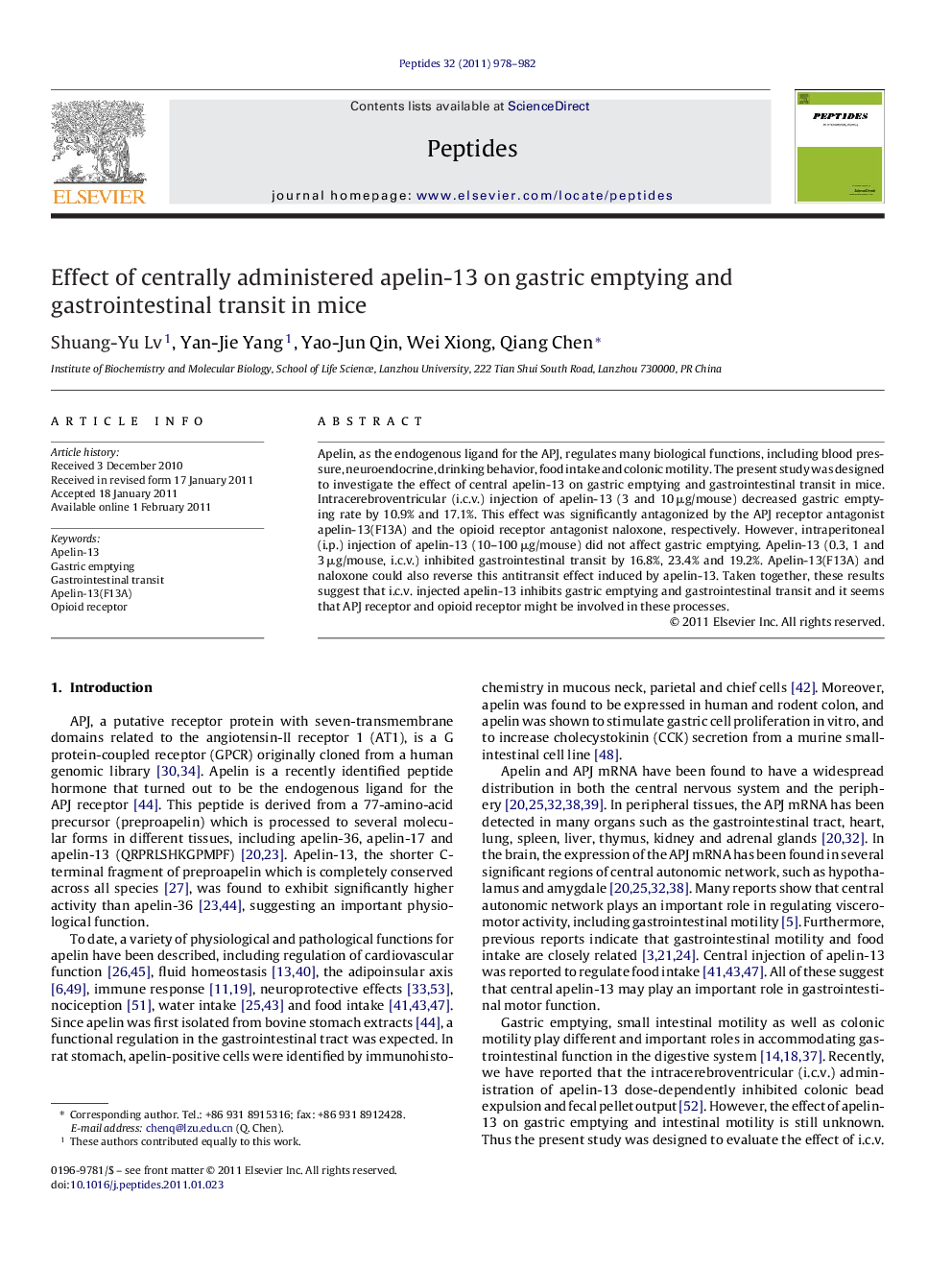| Article ID | Journal | Published Year | Pages | File Type |
|---|---|---|---|---|
| 2006549 | Peptides | 2011 | 5 Pages |
Apelin, as the endogenous ligand for the APJ, regulates many biological functions, including blood pressure, neuroendocrine, drinking behavior, food intake and colonic motility. The present study was designed to investigate the effect of central apelin-13 on gastric emptying and gastrointestinal transit in mice. Intracerebroventricular (i.c.v.) injection of apelin-13 (3 and 10 μg/mouse) decreased gastric emptying rate by 10.9% and 17.1%. This effect was significantly antagonized by the APJ receptor antagonist apelin-13(F13A) and the opioid receptor antagonist naloxone, respectively. However, intraperitoneal (i.p.) injection of apelin-13 (10–100 μg/mouse) did not affect gastric emptying. Apelin-13 (0.3, 1 and 3 μg/mouse, i.c.v.) inhibited gastrointestinal transit by 16.8%, 23.4% and 19.2%. Apelin-13(F13A) and naloxone could also reverse this antitransit effect induced by apelin-13. Taken together, these results suggest that i.c.v. injected apelin-13 inhibits gastric emptying and gastrointestinal transit and it seems that APJ receptor and opioid receptor might be involved in these processes.
Research highlights► Intracerebroventricular injection of apelin-13 dose-dependently inhibits gastric emptying and gastrointestinal transit in mice. ► Apelin-13 inhibits gastric emptying and gastrointestinal transit through the activation of APJ receptors. ► Opioid receptors are involved in the delayed gastric emptying and gastrointestinal transit induced by apelin-13.
